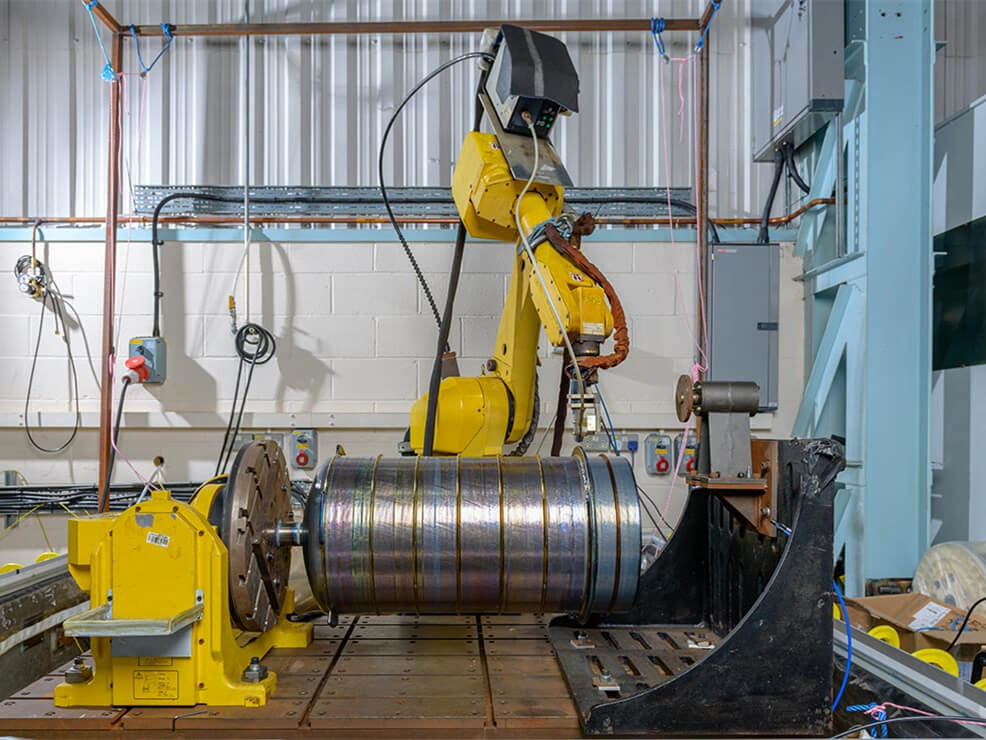In the realm of industrial storage solutions, the evolution of materials and engineering techniques continues to drive innovation and efficiency. Among the array of options available, titanium tanks stand out as a testament to modern engineering excellence. With their unparalleled strength, corrosion resistance, and versatility, titanium tanks are revolutionizing industrial storage across diverse sectors. In this exploration, we delve into the innovations and advancements shaping titanium tanks and their significance in the modern era of industrial storage.
Understanding Titanium Tanks
Titanium tanks represent a fusion of cutting-edge materials science and innovative engineering, harnessing the unique properties of titanium to meet the demanding requirements of industrial storage applications. Titanium, renowned for its exceptional strength-to-weight ratio, corrosion resistance, and biocompatibility, offers distinct advantages over traditional materials such as steel and aluminum.
Strength and Durability
One of the key advantages of titanium tanks is their exceptional strength and durability. Titanium boasts a higher strength-to-weight ratio than steel, allowing for the construction of lightweight yet incredibly strong tanks. This strength translates to enhanced resistance to mechanical stress, making titanium tanks ideal for storing volatile or hazardous materials.
Corrosion Resistance
Corrosion resistance is another defining characteristic of titanium tanks. Unlike steel tanks, which are susceptible to rust and corrosion, titanium tanks are virtually impervious to corrosion, even in highly corrosive environments such as chemical processing plants or offshore oil rigs. This corrosion resistance ensures the longevity and reliability of titanium tanks, reducing maintenance costs and downtime.
Versatility
Titanium tanks offer unparalleled versatility, making them suitable for a wide range of industrial applications. From storing chemicals and acids to housing process fluids and wastewater, titanium tanks excel in diverse environments. Their ability to withstand extreme temperatures, pressure fluctuations, and aggressive chemicals makes them indispensable in industries ranging from aerospace and defense to chemical processing and pharmaceuticals.
Innovations Driving Titanium Tank Technology
The continuous evolution of titanium tank technology is fueled by ongoing research and development efforts aimed at enhancing performance, efficiency, and sustainability. Several key innovations are shaping the future of titanium tanks in the modern era of industrial storage.
Advanced Manufacturing Techniques
Advancements in manufacturing techniques, such as additive manufacturing (3D printing), enable the production of complex geometries and customized designs with precision and efficiency. 3D-printed titanium tanks offer greater design flexibility, reduced material waste, and faster production times compared to traditional manufacturing methods.
Composite Materials Integration
The integration of composite materials with titanium offers the potential to further enhance the performance and capabilities of titanium tanks. Composite materials, such as carbon fiber or fiberglass, can reinforce titanium structures, providing additional strength, impact resistance, and fatigue endurance while reducing overall weight.
Smart Tank Technologies
The adoption of smart technologies, such as sensors, actuators, and IoT connectivity, enables real-time monitoring, data analytics, and predictive maintenance for titanium tanks. Smart tank systems provide insights into tank health, performance metrics, and operational efficiency, allowing for proactive maintenance and optimization of storage operations.
Sustainable Design Principles
Incorporating sustainable design principles, such as recyclability and energy efficiency, is another area of innovation in titanium tank technology. By optimizing material usage, reducing energy consumption, and minimizing environmental impact throughout the lifecycle of titanium tanks, manufacturers can contribute to sustainability goals while maintaining high performance and reliability.
Applications Across Industries
Titanium tanks find applications across a diverse range of industries, each benefiting from the unique advantages offered by this advanced storage technology.
Chemical Processing
In chemical processing plants, titanium tanks are used to store corrosive chemicals, acids, and solvents. Their exceptional corrosion resistance and chemical inertness ensure the integrity and purity of stored substances, minimizing the risk of contamination and environmental hazards.
Aerospace and Defense
In the aerospace and defense sectors, titanium tanks play a critical role in storing fuel, hydraulic fluids, and other mission-critical fluids. Their lightweight construction, high strength, and corrosion resistance make them ideal for aviation and aerospace applications where weight savings and durability are paramount.
Oil and Gas
Offshore oil and gas platforms rely on titanium tanks for storing seawater, process fluids, and drilling mud. The corrosion resistance of titanium ensures the longevity of storage infrastructure in harsh marine environments, reducing maintenance costs and downtime.
Renewable Energy
In the renewable energy sector, titanium tanks are utilized for storing hydrogen, a key component of fuel cell systems and renewable energy storage solutions. Titanium’s compatibility with hydrogen and resistance to embrittlement make it an ideal material for hydrogen storage tanks, enabling the widespread adoption of clean energy technologies.
Future Perspectives
As industries continue to evolve and innovate, the demand for advanced storage solutions will only grow. Titanium tanks, with their exceptional performance, durability, and versatility, are well-positioned to meet the evolving needs of modern industry. With ongoing advancements in materials science, manufacturing techniques, and smart technologies, the future of titanium tanks promises even greater efficiency, reliability, and sustainability.
In conclusion, titanium tanks represent a pinnacle of modern engineering innovation, offering unparalleled strength, corrosion resistance, and versatility for industrial storage applications. From chemical processing plants to aerospace and renewable energy projects, titanium tanks play a vital role in safeguarding valuable resources, ensuring operational efficiency, and driving sustainable development. As we look to the future, the continued evolution of titanium tank technology holds the promise of transformative advancements in industrial storage for the modern era.
